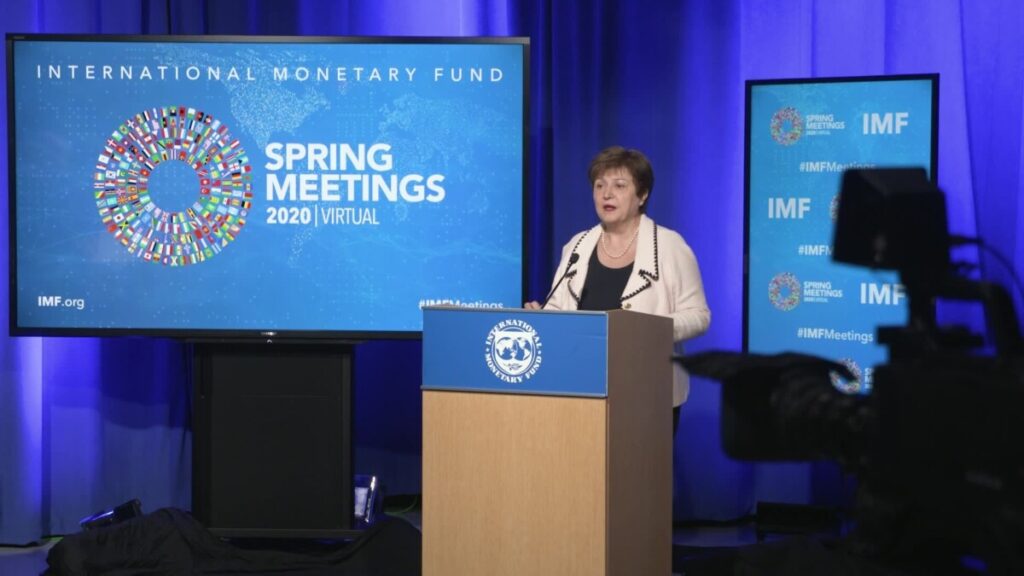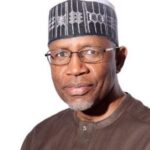In addressing the challenges facing Nigeria and taking advantage of the opportunities created by COVID-19 pandemic, the Federal Government has seen the private sector as being pivotal to strengthening the country’s domestic capacity to produce the needed goods and services.
In a presentation recently titled “Prioritising Private Sector as the Engine for Sustained and Inclusive Economic Growth and Job Creation” by Mrs. Zainab Shamsuna Ahmed, Honourable Minister of Finance, Budget and National Planning, at the launch of the International Finance Corporation (IFC) – World Bank Nigeria Country Private Sector Diagnostic, she said the country has to look to the private sector in its ability to achieve the goal of producing the needed goods and services and in order to put the country on the path towards becoming less dependent on importation and reducing the vulnerabilities to the global supply chain.
“The administration of President Muhammadu Buhari premises its policies and programmes on the belief that the private sector is the engine for job creation, inclusive and sustained economic growth, and building wealth for our people. We see the role of government in this context as an enabler and a facilitator. In other words, government has a responsibility to create an enabling environment, formulate policies and create opportunities that allow private sector to do what it does best with minimal interruption from government,” she stated.
Stating further, she said: “Occasionally, government will partner with private sector through public private partnerships (PPPs) wherein private sector brings its resources and expertise to deliver services on behalf of government. Under such PPP arrangements, government gets an opportunity to derive dividends and revenues from these PPP projects without the burden of funding the projects. Resources that would otherwise have been invested in these projects can be allocated to other priorities of government that the private sector may not find attractive or commercially viable.”
Welcoming the recommendations made, Ahmed also stated: “We shall constitute a team to review the report and come up with proposals on how the recommendations can be converted into immediate actionable plans. We shall also be making the report available to the various Thematic Working Groups currently working on the Medium-Term Development Plan (MTDP 2021-2025) and the Long-Term Development Plan 2050. Both of these are successor plans to the soon to expire ERGP 2017-2020 and Vision 20 2020 respectively.”
Although a lot of the recommendations made in the report are already being addressed by ongoing interventions of the government, “we also look forward to using this report to guide us in enhancing our current interventions and designing new ones. We believe that the successful implementation of our ongoing interventions and those recommended in this report will significantly support the private sector to bring about sustained and inclusive economic development, creating jobs for our teaming youths, building wealth and ensuring a more prosperous country for all.”
On current economic realities and diagnosis, the Honourable Minister said the government sees the private sector as a major partner of government in the current administration’s drive towards diversifying the economy. Based on the most recent gross domestic product (GDP) figures (Q2 2020) by the National Bureau of Statistics (NBS), the non-oil sector accounted for 91.07 percent of aggregate GDP in the second quarter of 2020 (Q2 2020) compared to 90.50 percent in the first quarter of 2020 (Q1 2020).
“The second quarter GDP declined by -6.10 percent in real terms during Q2 2020, the first decline in real non-GDP growth rate since Q3 2017. The non-oil sector output recorded positive growth, this include financial and insurance (financial institutions), information and communication (telecommunications), agriculture (crop production) and public administration. These sectors moderated the economy-wide decline. The non-oil sectors that experienced the highest negative growth included transport and storage, accommodation and food services, construction, education, real estate ad trade, among others.
In terms of contribution to real GDP in Q2 2020, Ahmed further said that agriculture contributed 24.65 percent, industries contributed 21.87 percent and services contributed 53.49 percent. In her words: “While we recognise some of the challenges that have inhibited the implementation of previous government reforms thereby thwarting economic growth and limiting job creation efforts of the government, some of the noteworthy and consistent trends we are seeing in our economyinclude but are not limited to: The non-oil sectors account for at least 90 percent of our nominal GDP; agriculture and services sectors account for over 75 percent of our GDP and provide the largest number of employment opportunities.”
Additionally, these two sectors, she noted, present the greatest opportunities to address the high youth unemployment challenge that the country currently faces. Specifically, we see the creative industries representing one of the greatest areas of opportunities for job creation for the youths.
Of the four sub-activities in the agriculture sector, she disclosed that crop production accounts for over 80 percent of the nominal GDP in the sector, though it represents a small fraction of the potential of the entire agribusiness value chain.






